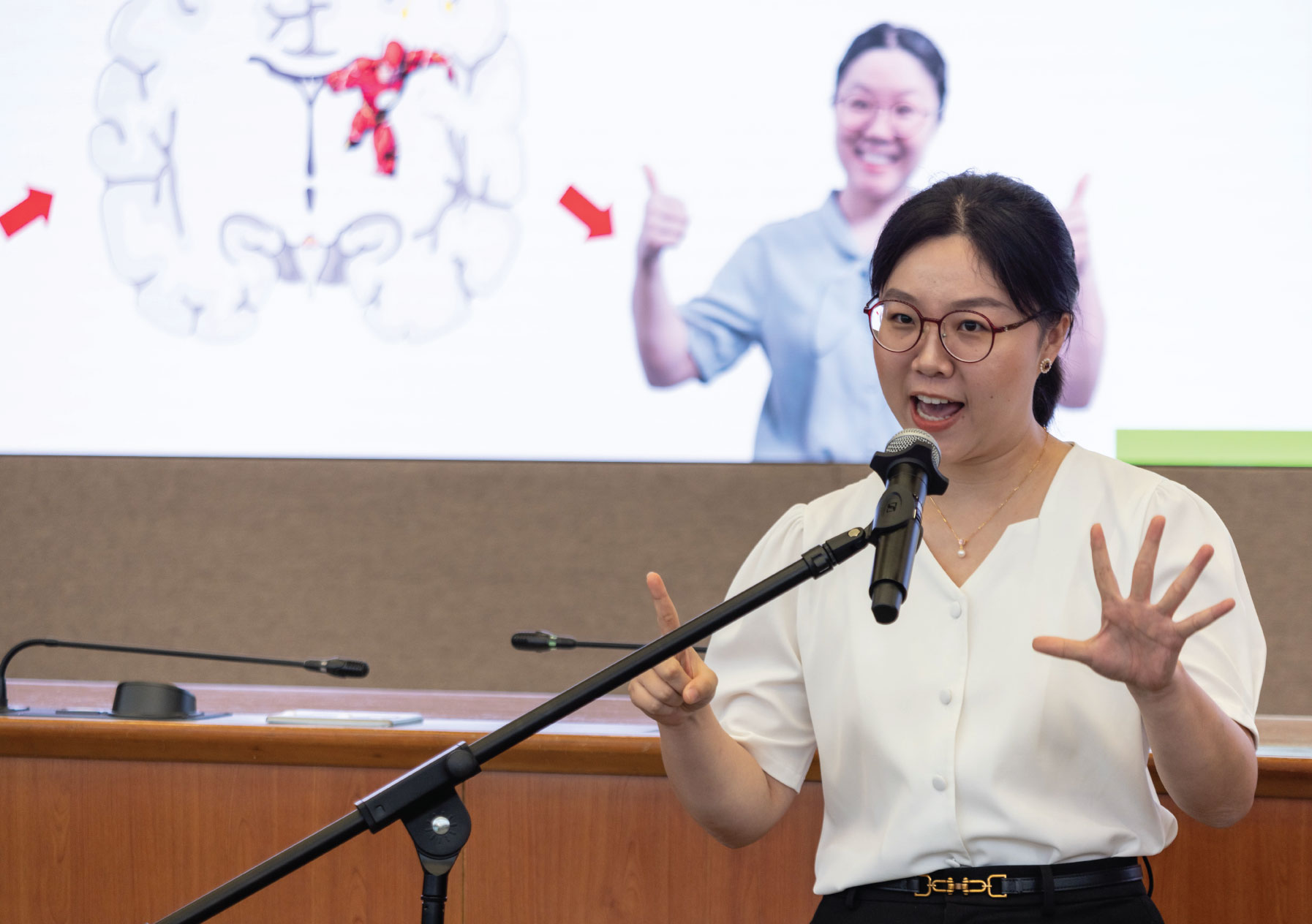Zhang Bing Bing's research is centered on the use of non-invasive brain stimulation, specifically Theta Burst Stimulation (TBS), for treating depression. Despite TBS being sanctioned for depression treatment in 2018, it only leads to remission in a third of patients. This has led Bingbing to delve deeper into the neuromodulatory effects of TBS. She partnered with the Medical University of Vienna for data analysis and showcased their findings at a 3-minute thesis competition, where she won both the champion and people's choice awards. Bingbing faced difficulties in elucidating the intricate mechanism of TBS, but she surmounted this by using the metaphor of a cartoon character, The Flash. Her presentation, communication, and problem-solving skills significantly improved with the steadfast support from Dr. Georg Kranz and Dr. Issa Ying. Bingbing's advice to other students is to effectively manage their time, maintain open communication with their supervisors, and not be afraid of failure.

Ms. ZHANG Bing Bing
PhD Student
Faculty of Health and Social Sciences
Department of Rehabilitation Sciences
Zhangbingbing's research interest focuses on non-invasive brain stimulation for depression. This area involves exploring therapeutic approaches that do not involve medication. Her motivation, driven by the experience of a friend with depression, highlights the need for alternative treatments beyond pharmacology in mental health care.
Zhangbingbing utilizes Theta Burst Stimulation (TBS) in her research, a non-invasive brain stimulation technique. TBS has been approved for depression treatment since 2018. However, she acknowledges the variability in patient response, emphasizing the importance of understanding the neuromodulatory effects of TBS. This knowledge contributes to optimizing treatment protocols.
Zhangbingbing's choice of research topic, non-invasive brain stimulation for depression, stems from a compassionate perspective. Her concern for a friend's struggle with depression during middle school ignited a lifelong interest in finding non-pharmacologic treatments. This demonstrates a commitment to learning driven by a desire to make a positive impact on mental health.
Zhangbingbing's engagement in the study of theta burst stimulation (TBS) and its neuromodulatory effects reflects a commitment to acquiring specialized research skills. Her collaboration with the Medical University of Vienna for data analysis indicates a proactive approach to broaden her research expertise beyond her home institution, PolyU.
Overcoming the challenge of simplifying the complex mechanism of TBS for a general audience during the 3MT competition demonstrates Zhangbingbing's commitment to effective science communication. Her use of a metaphor, comparing TBS to the actions of "The Flash," showcases creativity and adaptability in conveying complex scientific concepts to diverse audiences.
Zhangbingbing's participation in the 3MT competition resulted in a significant improvement in her presentation skills. From overcoming shyness to effectively interacting with the audience and using body language, she exemplifies the commitment to continuous improvement and refinement of her communication abilities.
The pursuit of knowledge is a lifelong journey! To further expand your knowledge and continue your personal and professional growth. Click and explore the following learning resources:
Non-Invasive Brain Stimulation for Depression